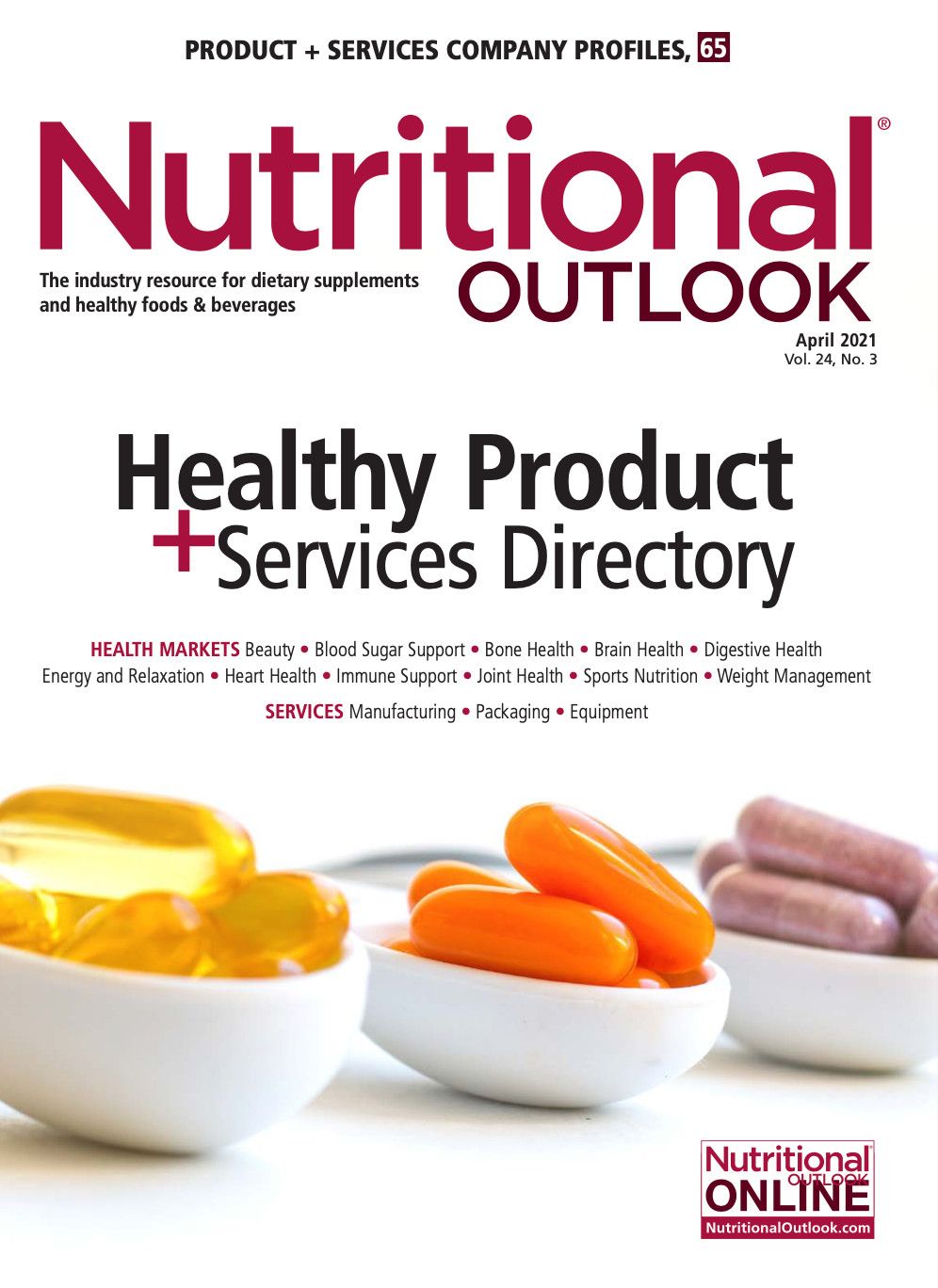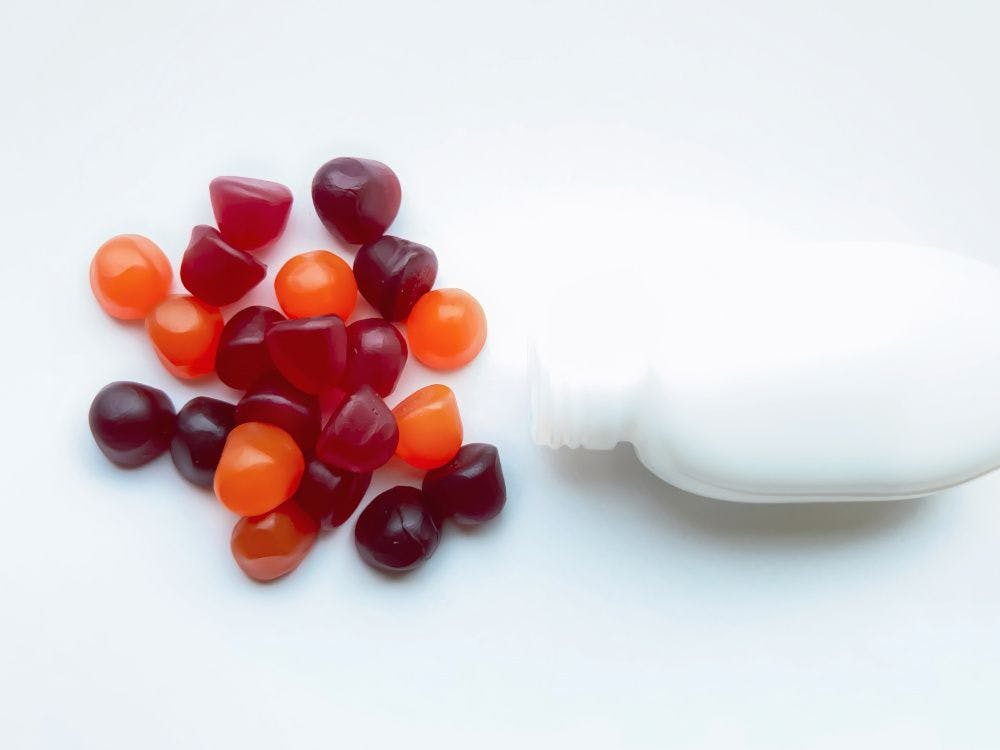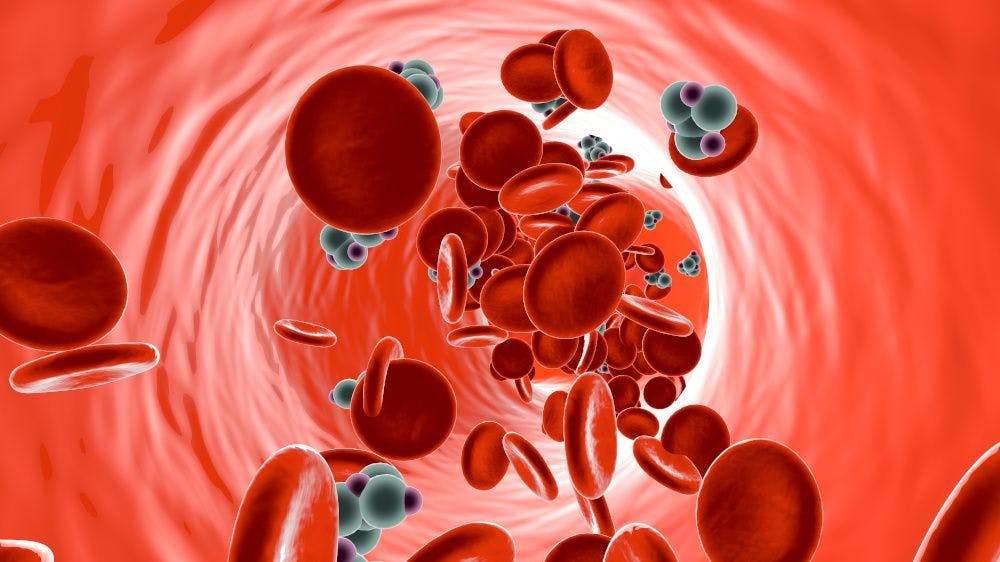Heart health: Finding opportunities for supplements in a crowded field
Heart-health supplements continue to compete with everyday foods and pharma.
Photo © Vectormine - Stock.adobe.com

Cardiovascular diseases (CVDs) are still the leading cause of death worldwide, according to the World Health Organization, with heart disease leading the charge in the United States. Yet the heart health nutrition product market exhibits only modest growth.
There could be several reasons. One main reason is that the field is crowded. When it comes to foods and beverages, for instance, Julian Mellentin, director and founder of New Nutrition Business, says there are so many products that tout heart health, directly and indirectly, that no matter how scientifically sound a heart health–specific product is, it is often in competition with everyday foods.
Consumers are already seeking health benefits from their everyday food, and “healthy heart” claims are already common for whole foods such as almonds, blueberries, olive oil, and oats. An October 2020 Forbes article1 reported that consumers seeking food-centered benefits cite their top goals as: weight management (62%), energy support (57%), digestive health (46%), heart health (44%), and immune function (40%). The data came from an April 2020 survey conducted by the International Food Information Council on 1,011 U.S. adults.
Both the food and dietary supplement markets also compete with pharma. As Mellentin points out, when it comes to cardiovascular support, “Doctors prescribe drugs, not foods. In some markets, they have already limited/killed the heart health market, such as in the United States where a $100 million investment by McNeil”—Raisio’s worldwide marketing licensee for Benecol’s heart-healthy food products—“earned just $30 million in sales. This was despite a major communications effort targeting healthcare professionals and key influencers (cardiologists).”
Combined, these factors have an impact. Lu Ann Williams, cofounder and global insights director at market researcher Innova Market Insights, says, “The use of heart health claims in food and beverage launches has decreased globally, featuring a 9% year-over-year decrease when comparing 2019 and 2020 year-to-date (YTD) launches.”
Opportunities
The good news is that overall consumer awareness of heart health is high and has been for a long time. So, where are the opportunities for dietary supplements moving forward? What will motivate consumers to seek health-promoting products and especially those for heart health?
Firstly, the COVID-19 pandemic has led more consumers to focus on improving their health overall, giving heart health marketers a new window for outreach. As market researcher Mintel stated in its 2021 Global Food and Drink Trends report: “The pandemic has made consumers recognize that well-being is a vital concern.”
Furthermore, COVID-19 created a shift in consumer buying habits, among both young and old, inspiring more people to seek health-promoting foods in general—meaning foods will continue to be an outlet. The editors of the Institute of Food Technologists’ (IFT) Food Technology magazine named “Food as Medicine” as one of its nine food trends to watch in 2021.2
In an IFT press release, A. Elizabeth Sloan, contributing editor, consumer trends, IFT, said, “COVID-19 has been a unique catalyst, driving the global ‘food as medicine’ movement mainstream. Buying foods for specific health benefits will continue to outpace selecting foods with more passive health positionings, such as organic, clean, local, etc. Watch for increased labeling of inherent natural health-promoting ingredients. If you got it, flaunt it! Those looking to manage and treat a condition with a food or beverage will reach an all-time high. With younger consumers embracing functional foods, new and unique health-promoting ingredients and superfoods will be a strong draw for consumers.”
Another opportunity relates to a growing emphasis on emotional well-being. According to Mintel’s report, “In 2021 and beyond, food and drink companies will create mental and emotional well-being solutions...” This has oblique implications for heart health. Take stress, for instance.
“One area that often gets overlooked is adding in supplements that address underlying stress for those with elevated blood pressure,” says David Foreman, RPh, president, Herbal Pharmacist Media LLC. “There are many ingredients such as ashwagandha and black seed oil that have studies showing their benefits for lowering blood pressure as a secondary outcome,” he adds.
Newer ingredients with primary and secondary benefits, such as those Foreman mentions, as well as ingredients like probiotics, are breaking onto the heart health supplement scene. They join cardiovascular mainstays like coenzyme Q10 (CoQ10), magnesium, beta-glucans, omega-3s, etc.
Irfan Qureshi, vice president, product development and quality assurance for supplements brand Healthy Directions, also mentions ashwagandha, as well as the Ayurvedic herb amla, polyphenol-rich plant extracts, and olive fruit extracts as growing their profile in the heart health space. Resveratrol is another. “While originally appreciated for its healthy-aging benefits, research on resveratrol indicates it supports key markers of cardiovascular health, including blood flow, endothelial function, and lipid markers,” he notes.
Probiotics are gaining attention, he agrees. “Specific probiotic strains that address various measures of cardiovascular health, as well as nutrients and herbs with anti-inflammatory effects, are of growing interest,” Qureshi says. “Inflammation is a significant factor in heart health, and effectively addressing it is a necessity for enhancing cardiovascular function.”
Crossover supplements that offer more than one health claim are seeing success. For example, “An area impacted by poor cardiovascular health is cognitive function, so products that address both heart health and brain health are appealing,” Qureshi says. In fact, Innova Market Insights reports that in 2020, the top health positionings of global product launches with heart health claims were brain/mood health (supplements; 24%), immune health (20%), and energy and stamina (supplements; 15%).
Moving Forward
Heart health messaging still faces the challenge of capturing the attention of a younger audience in addition to older consumers. But progress can be made.
What’s interesting is how differently younger consumers view heart health from consumers aged 55 and older, Qureshi points out. “In general, younger consumers are looking at heart health supplements from a maintenance and performance-optimization standpoint, whereas older consumers are looking to address cardio concerns they have already developed or have a family history of and are looking to avoid,” he says. “For therapeutic heart health supplements, the most likely demographic they appeal to are still seniors, whereas younger consumers tend to gravitate toward sports nutrition and athletic performance products that optimize heart function and blood vessel health.”
According to the Council for Responsible Nutrition’s (CRN; Washington, DC) 2020 Consumer Survey on Dietary Supplements, 23% of total supplement users reported taking dietary supplements to support heart health. The breakdown by age group was as follows: 18-34 (19%), 35-54 (22%), 55+ (25%).
Mellentin points out that younger folks aren’t often motivated to buy heart health products unless they or a loved one have an issue. It is possible, however, that younger generations will be more motivated to tackle health maintenance generally—again, through foods.
Practitioners are also getting on board with natural products. Foreman says that, fortunately, “The medical community is more open to natural products these days than they were 20 years ago. Cardiologists are now recommending CoQ10 to be taken when they prescribe statin drugs. As we can provide clinical evidence that supplements work, consumers and medical professionals will jump onboard. [Supplements] like omega-3s are already well documented. The more documentation we can get, the more utilization will occur.”
In general, Qureshi says product development should focus on scientifically substantiated ingredients that address multiple factors associated with heart health. “Education should be provided so that younger consumers see the benefits of supplementation with these ingredients as preventive measures before heart health issues present themselves,” he recommends. “Providing resources around the various aspects of physical and mental health that are impacted by healthy heart function will motivate consumers to begin taking steps earlier in life to ensure these areas of health are supported well before problems arise.”
Marketers should continue pushing forward with a preventative message to younger customers and by emphasizing crossover benefits. After all, many ingredients that are good for bone or brain health are also good for heart health. Foreman says he uses the phrase, “Pay me now or pay me later.” With millennials taking a more proactive role in their health, he says, targeting their age bracket is a good starting point.
References
- Lempert P. “Food Trends Forecast 2021: Being Healthy in a Post COVID-19 World.” Forbes. Published online October 19, 2020.
- Brain Food: The Official IFT Blog. “9 Food Trends to Watch for in 2021.” Institute of Food Technologists website. Published online January 6, 2021.

Prinova acquires Aplinova to further increase its footprint in Latin America
April 7th 2025Prinova has recently announced the acquisition of Brazilian ingredients distributor Aplinova, which is a provider of specialty ingredients for a range of market segments that include food, beverage, supplements, and personal care.

























